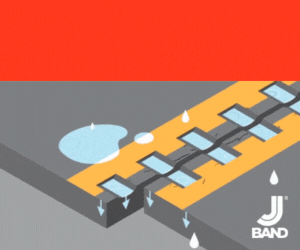In March 2006, BP Bitumen launched its RailSafe Asphalt Awareness program in North America.
The awareness program will help reduce incidents related to the loading and unloading of liquid asphalt railcars.
“Although liquid asphalt railcar loading and unloading incidents are infrequent, there is opportunity to further reduce the number of reportable incidents,” said Scott Williams, BP Bitumen’s Health, Safety, Security and Environment Advisor.
Williams pointed out that problems caused by defective railcar equipment can go undetected due to a lack of knowledge about the bad order protocol, which identifies improper freight car loading, mechanical defects or safety violations.
Education is Key
Education about the use of bad order tags will result in faulty rail cars taken out of the system and repaired quickly.
The asphalt version of “RailSafe is actually a good example of the transfer of best practice from BP’s Natural Gas Liquids (NGL) business,” Williams said. “We combined our experience using RailSafe in the NGL business with expert advice from our refining and asphalt terminal operator partners to develop our program.”
BP Bitumen manages the asphalt rail car fleet with service support from BP’s NGL business. With good links via EJE, Norfolk Southern, IHB and BOCT/CSXT rail-roads, BP’s refinery at Whiting, Indiana, supplies markets across the United States and Canada.
BP’s range of logistic options, combined with its geographic location in the midwest United States, means that rail is an important strategic mode of transport to BP. It facilitates liquid asphalt sales throughout mainland USA and Canada. “Barge and rail are key transport modes for bulk shipment—not only for national sales, but also for primary transport movements to local terminals,” said Mark Bunch, BP’s U.S. Asphalt Marketing Manager.
Simulated Leaks
In addition to the awareness and educational aspects of RailSafe, BP has built some vital realism into the program by including Safety Train, a first-of-its-type, two compartment tank car that can realistically simulate liquid and vapor leaks.
In order to provide a wide variety of loading and unloading situations, as well as scenarios involving leaks and missing and defective parts, Safety Train is equipped with several different valves and other fittings. It contains a walk-in, climate controlled compartment at one end of the car to provide trainees with an internal view of components. BP provides experienced instructors for Safety Train training sessions at key customer sites.
Safety Kit
BP has also developed a range of safety components to meet the diverse needs of production sites. The components include:
- A DVD for operators that explains and demonstrates best practices for loading and unloading in detail
- A reference notebook for supervisors or foremen that contains a wide variety of safe handling materials
- A laminated wall chart with photographs and descriptions of the most common defects
- Special durable bad order tags to clearly mark rail car problems for attention.
BP will deliver RailSafe through specially designed emergency response training and exercises across North America each year to help customers who are operating from rail terminals to improve product handling and transportation safety.
|
For further information on BP RailSafe, contact Scott Williams or
visit the BP Bitumen website, www.bp.com. |













